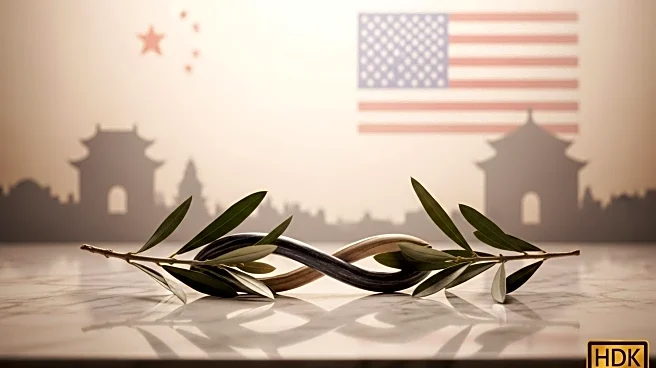What's Happening?
The American Volunteer Group (AVG), known as the Flying Tigers, is being honored in China despite ongoing US-China tensions. The group, consisting of American pilots, mechanics, and support personnel, played a crucial role during World War II by destroying 497 Japanese planes while losing only 73. The AVG's efforts are still celebrated in China, with the daughter and granddaughter of the group's founder invited to a military parade in Beijing commemorating the end of World War II. The Flying Tigers were formed in the late 1930s when China was invaded by Japan, and American Claire Chennault was hired to create an air force. The AVG's legacy is preserved in museums and cultural references in China.
Why It's Important?
The enduring reverence for the Flying Tigers in China highlights the complex historical ties between the US and China, even amidst current geopolitical tensions. The AVG's contributions during World War II are a reminder of past cooperation between the two nations. This historical bond may influence diplomatic relations, as it underscores a shared history of collaboration against common adversaries. The invitation of AVG relatives to a significant military event in China signifies a gesture of goodwill, potentially serving as a diplomatic bridge in a time of strained relations.
What's Next?
The commemoration of the Flying Tigers' legacy may prompt further cultural and historical exchanges between the US and China. It could also lead to increased public interest in the historical ties between the two countries, potentially fostering dialogue and understanding. The event may encourage other nations to reflect on historical alliances and their impact on current international relations.
Beyond the Headlines
The celebration of the Flying Tigers in China raises questions about the role of historical narratives in shaping national identities and international diplomacy. It highlights the potential for historical events to serve as tools for soft power, influencing perceptions and fostering connections across borders. The legacy of the Flying Tigers may also inspire discussions on the ethical implications of mercenary forces and their contributions to global conflicts.









